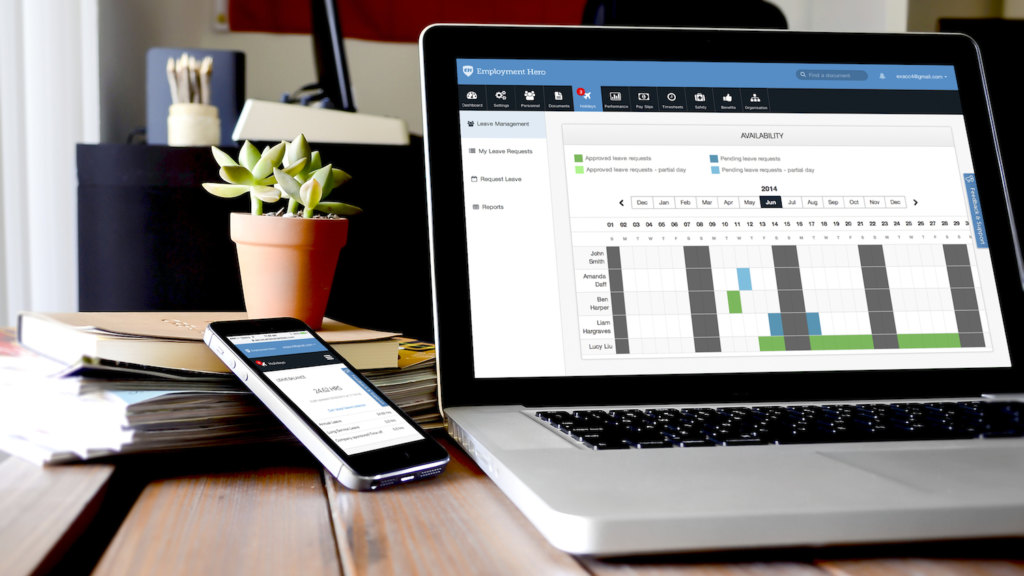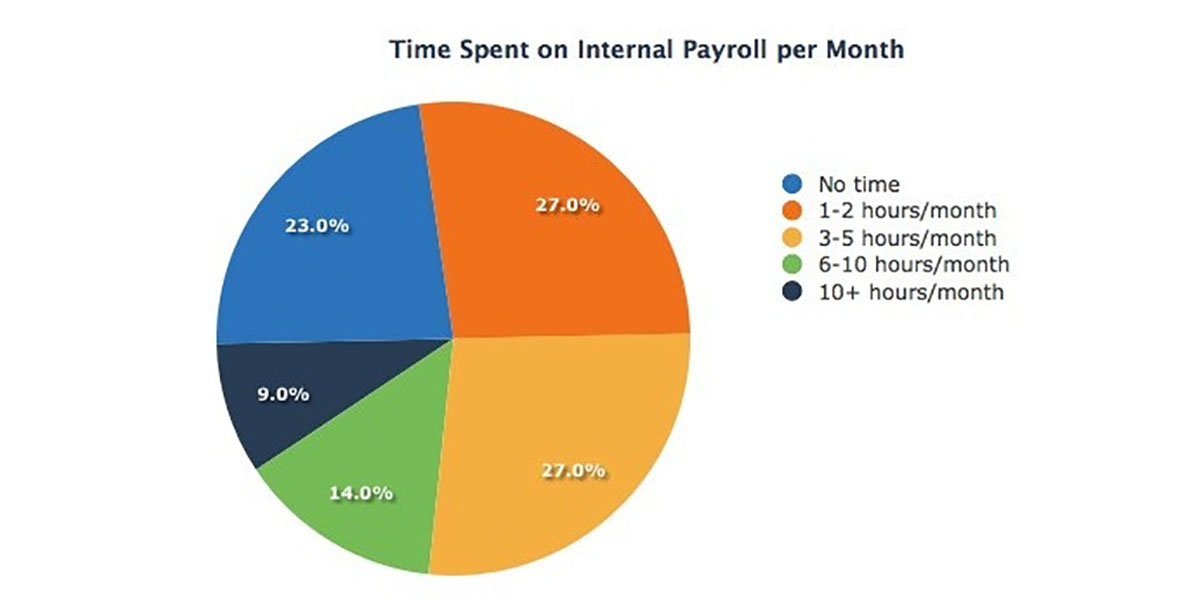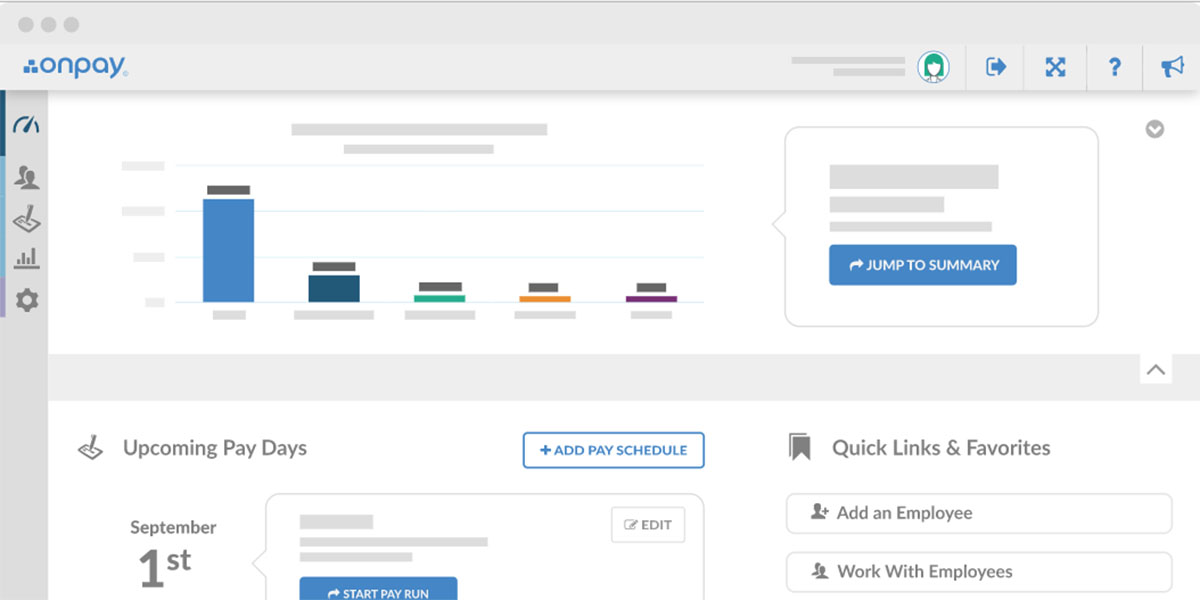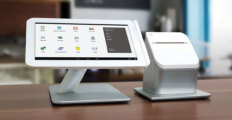Why switch to cloud-based payroll processing? In general, you gain more flexibility in features, control and cost compared to using an on-premise system or having payroll outsourced to an agency. Both small business and enterprise are poised to reap the following benefits associated to cloud payroll:
- Single Solution
- Scalability
- Real Time Data
- Paperless
- Meet deadlines
- Meet compliance requirements
- Employee access
In this article, you’ll understand more details on the benefits of cloud-based payroll systems and the reasons why adopting them would greatly improve the way you process payroll. You’ll also learn more about the drawbacks of on-premise systems and payroll outsourcing.
- Benefits of cloud-based payroll systems
- Examples of cloud-based payroll software
- Why not on-premise payroll?
- How about payroll outsourcing?

For businesses who prefer to handle their own payroll runs, there are but two types of solutions to choose from–on-premise and cloud-based systems. Both platforms are designed to both streamline and automate payroll processes while ensuring accuracy, efficiency and on-time payments.
However, there’s a vast difference between these two types of payroll software programs. While both have their own strengths, they also have weaknesses that if left unchecked, could render them inefficient and unreliable. This is especially true in the case of on-premise payroll software, which have been deemed less effective than their cloud-based counterparts. Another element is payroll software cost. Most on-premise applications come with huge upfront fees, making them unpopular among SMBs who lack the cash flow to purchase such products.

Benefits of Payroll Software?
Payroll management has always been a daunting task for businesses. Personnel responsible for payroll runs can hit snags that can result in a variety of problems. Here, we define the most common payroll problems and what cloud-based payroll software can do to address them. The following are some of the benefits of cloud payroll system:
Single Solution
The use of multiple platforms to manage different HR processes is not just impractical but time consuming as well. An edge that cloud-based payroll software have is their ability to offer just about any HR management need. Aside from payroll, these solutions provide time and attendance and HR and benefits administration capabilities all from a single console. There is no need to use multiple systems, allowing users to update employee data in a single entry, resulting in time savings and data accuracy.
Scalability
With on-premise systems, your business is basically stuck on a solution that basically remains the same since the day you bought it. They are unable to grow as your business does and are therefore lacking in needed features that your growing business needs. Cloud-based payroll software are ideal for growing businesses as they are highly-scalable. They promote business growth owing to the fact that cloud storage eliminates paper processes and associated costs that usually impede growth. In addition, users have the option to upgrade and customize their platforms depending on their needs. These systems can be expanded as an organization grows.
Accurate Reports and Real Time Data
Errors often stem from manual processes associated with payroll processing, the most common of which is manual data entry. This could result in problems such as incorrect time hours, lost time cards, missed clock outs and failure to track over time. These inaccuracies, in turn, give rise to inaccurate payment of salaries, tax deductions and tax compliance. What’s worse is the prospect of non-compliance, which carry hefty fines.
With cloud-deployed systems, businesses are given the opportunity to view employee data at all times as these solutions process them in real time. This, complemented by the fact that they offer users the convenience of not having to enter information manually, results in overall control over human capital management, promoting better decision-making. All needed information are also provided in the form of customized reports, which can be generated at any time.
No More Paper
Most payroll staff have to contend with clutter in their offices, bulky file cabinets and generally disorganized workplaces. With cloud-based payroll software you can achieve a paperless work environment, significantly reducing your business’ carbon footprint. This will not only save you money but contribute to the environment as well. In addition, problems from pending or lost tasks can be minimized if not eliminated as these systems make sure that all forms are completely filled and notifies personnel of missing employee forms.
Deadlines/Non-Compliance
Payroll managers are required to meet certain deadlines, the most important of which are paychecks and tax filing deadlines. Failure to deliver employee salaries on time can negatively impact employee morale and productivity. On the other hand, complications and changes in HR laws could drag businesses into serious trouble with the law. US regulators are known to impose heavy fines on those who violate taxation rules, making it imperative for companies to have a flexible payroll system. Cloud-based solutions automatically provide updates on changes in the law and inform users of the status of their compliance. These updates likewise enable businesses to make sound decisions.

Another cloud-based payroll benefit: You can update employee pay and even set reminders in case you need to add something during the payroll run
Staff Classification
A common error in payroll management, improper employee classification can result in inaccurate payroll calculations and can even lead to fines for non-compliance. Questions about payroll has legal consequences, which in some situations, can prompt employee disconnect or worse, capsize a business. Cloud payroll systems’ ability to automate processes ensures that all employees are properly classified and accurately paid.
Data Security
Keeping employee information safe is a great responsibility. Occurrences such as data theft and system crashes can adversely impact payroll processes. It is no secret that on-premise solutions are prone to data loss and this is an area where cloud-based tools excel. The development of cloud technology has made it possible to keep data safe yet accessible to concerned parties.
Employee Access
Manual and legacy payroll systems are known to limit information access to managers and relevant users, with work and payroll-related data out of employees’ reach. But all that has changed as cloud-based payroll software allow companies to provide their employees with access to their own information. Doing so has been found to boost employee engagement. Self-management allows employees to view their own time cards, PTO requests and take advantage of open enrollments, among others. This also gives HR personnel more breathing room as it takes off some of administrative responsibilities off their shoulders.
Record Keeping
Payroll management is not limited to furnishing employees with paychecks and complying with tax regulations. It is also about keeping records for use in audits. Keeping proper records can protect a company against audits, penalties and employee allegations. These records can also be accessed by employees, which can significantly lessen administrative burdens for payroll staff. By far, cloud-based payroll software are the best when it comes to maintaining records, keeping them safe, secure and accessible.

Cloud payroll software have additional HR features
Examples of Cloud-Based Payroll Software
Now that you know what cloud-based payroll software can do for you, let us take a look at some of the most popular ones in the market today. Here they are:
- Gusto. Gusto is a payroll management software, which can also manage processes such as HR management and benefits administration. It is designed to cater to small businesses, providing them with powerful payroll management functionalities, automation and a very intuitive user interface.
Other key features include payroll tax calculation, compensation insurance, 401(k) and check and direct deposit payment.
Gusto can be purchased in a single pricing plan, starting at $39 plus $6 per person. This package comes with all platform features and useful add-ons like other benefits, HR tools and health insurance. Want to try the features before committing to a plan? You can easily sign up for Gusto free trial here. - OnPay. An easy-to-use yet comprehensive payroll platform, OnPay offers SMBs highly-scalable HR solutions. This cloud-deployed system is able to streamline processes involved in payroll while automating tax filing and payment. It can automatically and seamlessly enter payroll data like hours, reimbursements, bonuses and tips, saving users precious time. Other HR tasks can also be managed by the system such as health insurance, 401(k) and compensation insurance for pay-as-you-go staff.
The app allows for unlimited payroll runs for W-2 workers and 1099 contract employees, with tax payments payable by either direct deposit or check.
OnPay comes for $36/month for online payroll with each user charged an additional $4/month. Monthly charges are based on the number of a business’ active employees. The vendor has a calculator on its website that can provide you with an estimate. It also offers an attractive free trial plan. Simply sign up for a OnPay free trial here. - ADP Workforce Now. Total HR management software ADP Workforce Now is a complete HR management solution that captures data and automates all HR processes using a single dashboard. It allows for employee self-management, providing for the creation of additional user permissions.
Other notable features include benefits, payroll, time and attendance and talent management. In addition, users are allowed to manage their own employee onboarding processes.
The vendor does not publicly disclose ADP Workforce Now’s pricing plans. You can avail of enterprise pricing information upon request. - Xero. Accounting platform Xero is credited with revolutionizing accounting. It is a total accounting solution that is capable of making tasks such as double bookkeeping and payroll processing as simple as can be.
For businesses who need a bookkeeper, the vendor provides certified advisors who are ready to assist them. The solution has become a popular tool in countries like Australia, UK, US and Europe. Its express setup features make installation easy while third-party application integrations are also allowed.
Xero is available in different pricing models like its Starting package, which comes for $25/month. A premium plan that is able to handle invoicing, quotes, bills and multicurrency transactions is also available. - Dayforce HCM. Web-based HR management platform Dayforce HCM allows businesses to effectively manage processes such as workforce, payroll, benefit, taxation, talent and documentation. Using the solution, organizations can access real time data across different HCM processes.
It runs on popular browsers and can be accessed anytime, anywhere. For those who need more functionalities other than what the solution provides, third-party app integrations are also available.
Dayforce pricing plans are not available on the vendor’s website. You have to contact the company to request for a quote.
Why Not On-Premise Software?
So what’s wrong with using on-premise payroll software? This statement may seem a bit strong but there are a number of setbacks that come with these products, the reason why current HR management trends reflect preference for cloud-based platforms. Here are are some of them:
Need for IT Personnel to Maintain the System
As the term on-premise implies, such software need to be installed on company premises. Not only this, they require system maintenance that only IT experts can perform. This results in additional costs for any company.
Data Security
Unlike cloud-deployed payroll solutions, on-premise tools do not provide users with regular back ups, exposing valuable data to the risk of loss. Data loss can result from system crashes and corruption. Losing employee data is one of the most messy problems that any business can encounter.
No Mobile Optimization
Most on-premise payroll platforms are operated in offices and cannot be accessed by users on the go. Now there are times that relevant payroll staff cannot be in the office but still have to process payroll. This capability is one of the things that attract companies to cloud-based solutions.
Limited Features
To say that lack of features makes on-premise software unworthy of consideration would be inappropriate. They have provided excellent payroll capabilities during their heyday and they still do. However, new tools and functionalities provide users with benefits that on-premise tools cannot. These include real time attendance, mobile optimization and regular backups.

Payroll summaries and scheduling are but some of the benefits of cloud payroll systems
How About Payroll Outsourcing?
Unlike on-premise payroll applications, payroll outsourcing entail many benefits. Imagine somebody running payrolls for your company. These services make payroll management from different locations fairly simple, with HR departments managing a single contract.
Another benefit of payroll outsourcing is legislative compliance, helping businesses avoid the mistake of misinterpreting laws or failing to keep up with regulatory changes. Payroll services handle all legal requirements, aligning companies’ systems with federal or state laws. In addition, these services can help lower payroll costs and boost efficiencies, making them ideal for many organizations.
However, with all the benefits that it entails, payroll outsourcing is not without flaws. There are two common issues associated with payroll outsourcing that can adversely affect any business. Let’s find out what they are.
Resistance from In-House Payroll Teams
Change is something that many people do not want, opting to stick to familiar systems despite their shortcomings. Transitioning to a new payroll system can be met with reluctance from your payroll team. Although highly beneficial in terms of speed and mobility, staff are known to be concerned about lack of control over information and even job loss.
Disruptions to Operations
Without a detailed change management program and if existing systems need tweaking, migration to a payroll service could disrupt relevant business operations.
Concerns Over Data Security
One major setback to payroll outsourcing is the potential for data breach. Businesses are required to provide these services with a number of confidential employee information, the confidentiality of which could be compromised. It will help to evaluate an outsourcing company’s security measures first before committing to one.
Unwanted Services
It is a fact that many payroll outsourcing providers offer additional services, which are often come in bundles. Businesses can easily be attracted to these plans and unwittingly increase their payroll outsourcing overheads. The worst part is a company may not even benefit from such add-on services.
Inconsistent Work Quality
While many payroll outsourcing firms pride themselves in the quality of their work, many are known to provide inconsistent work quality. This could mean inaccurate salary calculations and tax deductions, which could result in additional workloads for client companies.
And that’s the case for cloud-based payroll software, which basically answers the question, why switch to cloud-based payroll processing. Consider the benefits that these tools have to offer and think of what your organization needs in such solutions. Only then will you be able to find the right one for you. However, if you feel that you need to know more about these products, check out this top 20 payroll software guide. It will give you all that you need to know about them and how to go about choosing one.


























Cloud based...far more insecure than on site.
Open to hacking and taking down. Poor firewall security.
Power failure, no internet, no cloud. Cloud server fails..no operating.
Wifi down, no internet, no cloud.
Benefits of cloud. Cheaper for the software supplier...that's it.
Benefits of on site software.
Secure, easy to administer.
Power cut,?? USB steps in, easy.
Secure, off site backuop mean no cloud susceptibility.
So called scalability is bunkum. Its all about saving costs for the softerwear house...NOT for the customer.
I would always prefer site softwear.
Leave a comment!